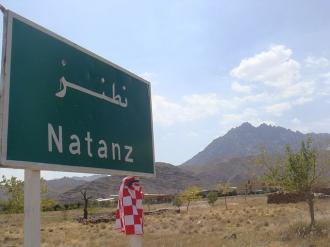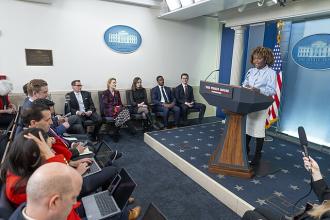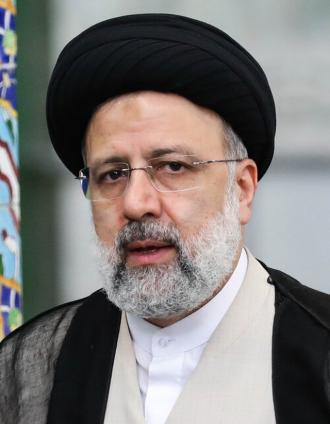U.S. Secretary of State Rex Tillerson said Thursday that Ukraine was the sole sticking point keeping the United States and Russia from forging a closer relationship and that all other disputes were secondary.
“The issue that stands in the way is Ukraine,” Tillerson said.
President Donald Trump campaigned on the need to improve ties with Russia, Tillerson said, adding that “normalizing” relations between the nuclear powers was something the U.S. still “badly would like to do.” He said that from the start, the Trump administration had told Moscow that addressing Ukraine was essential to warmer ties.
“We can have differences in other arenas, in Syria, we can have differences in other areas,” Tillerson said. “But when one country invades another, that is a difference that is hard to look past or to reconcile.”
Tillerson’s assessment plays down other areas of dispute, particularly Russia’s meddling in the 2016 presidential election. U.S. intelligence agencies, including the CIA and FBI, have concluded the Kremlin interfered in the election in an effort to help Trump and hurt Democrat Hillary Clinton.
Trump has repeatedly cast doubt on that finding, and a special counsel is investigating whether members of the Trump campaign colluded with the Russian effort. He has said he believes Russian President Vladimir Putin’s personal denials that the Moscow meddled.
Tillerson’s focus on Ukraine came as he met with European diplomats at the Organization for Security and Cooperation in Europe, established during the Cold War to serve as a bridge between East and West. Tillerson insisted the U.S. could never overlook Russia’s invasion of Ukraine and “attempted annexation” of the Crimean peninsula.
Tillerson planned to meet later Thursday with Russian Foreign Minister Sergey Lavrov.
Trump’s chief diplomat has emerged as one of the administration’s toughest voices on Russia and hasn’t shied away from accusing the Kremlin of election interference. In a speech last week in Washington, Tillerson said there was “clear evidence of Russia meddling in democratic elections in the U.S. and Europe,” calling it part an “active threat of a recently resurgent Russia.”
Though he didn’t bring up the election concerns Thursday, he did briefly mention long-standing U.S. tensions with Russia over Syria. The Kremlin has propped up Syrian President Bashar Assad while the U.S. has aligned itself with opposition groups seeking his ouster.
Washington and Moscow have worked to ensure their militaries, both active in Syria in recent years, don’t accidentally end up in confrontation. Yet there are growing U.S. concerns that Russia’s significant influence in Syria will make it harder to resolve the war there and to limit Iranian influence in the country now that the Islamic State group in Syria is near defeat.















